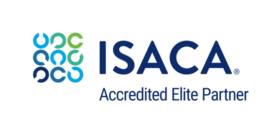As the digital world grows increasingly complex, organisations depend on skilled cybersecurity professionals to safeguard their systems, data and reputations.
Cybersecurity analysts play a critical role in identifying vulnerabilities, mitigating risks, and responding to threats that could lead to financial loss or operational disruption. However, for early-career professionals, gaining the necessary hands-on expertise to enter this field can be a significant challenge.
ISACA’s Certified Cybersecurity Operations Analyst™ (CCOA™) certification focuses on the technical skills to evaluate threats, identify vulnerabilities, and recommend countermeasures to prevent cyber incidents. As emerging technologies like automated systems using AI evolve, the role of the cyber analyst will only become more critical in protecting digital ecosystems. Analysts specialise in understanding the what, where and how behind cybersecurity incidents. By identifying patterns, anomalies and indicators of compromise, you become the eyes and ears of your organisation’s defense.
CCOA offers Performance-Based Labs: Users are provided access to a complete virtual machine loaded with an extensive list of tools/software that cybersecurity analysts use to complete everyday tasks. Each lab has detailed step-by-step instructions to guide users through the learning objectives helping support them as they master new cybersecurity skills.
This course includes a digital courseware manual and access to the CCOA Questions, Answers and Explanations (QAE) database for 12 months.
Please note: The exam is not included in the course fee but can be purchased separately. Please contact us for a quote.

